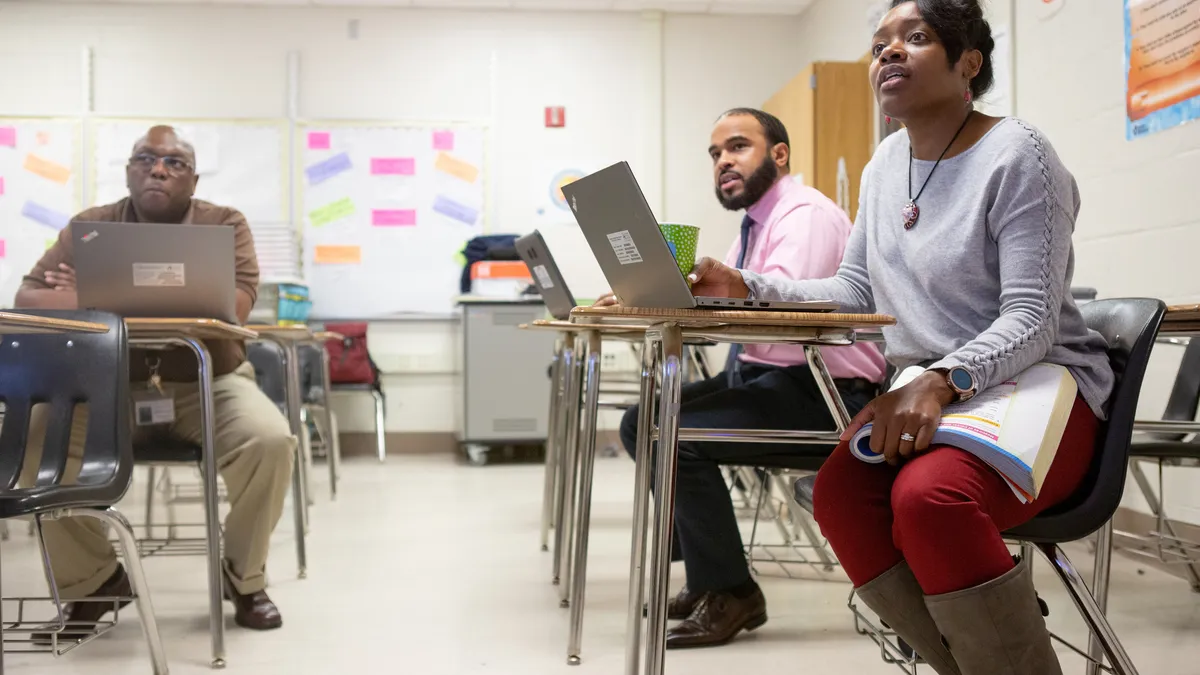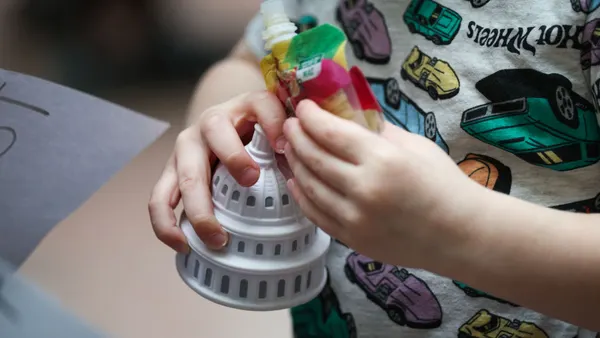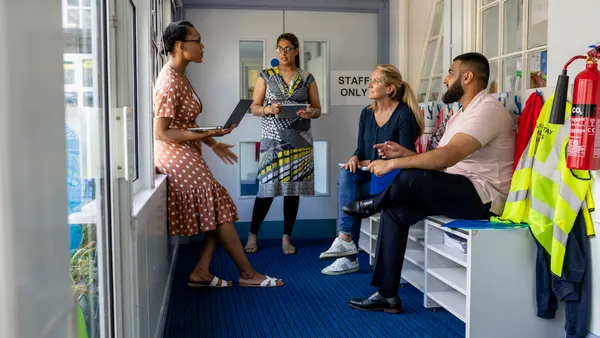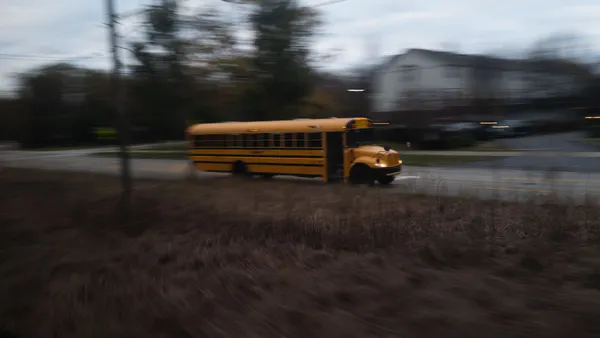Dive Brief:
- Surveys of teachers assigned to Department of Defense Education Activity schools nationally and internationally show high rates of satisfaction with professional development activities, with 95% of respondents saying they planned to use what they learned in the classroom, according to research from the U.S. Government Accountability Office.
- Some 90% of teachers also called the professional development content organized and said the training exercises and activities were easy to follow. At the same time, some said they experienced time constraints and technical barriers when trying to implement in the classroom what they had learned in professional development.
- As U.S. traditional schools face teacher shortages, education leaders and advocates recommend school systems provide high-quality professional development to retain staff and help students recover from pandemic-related learning loss.
Dive Insight:
DODEA’s professional development approach calls for annual professional learning plans, consistent training on standards, and evaluation of professional learning results.
While 36% of teachers said they experienced no barriers to implementing skills learned in professional development when in the classroom, 29% said time was a challenge and 17% said access to resources and technology was an obstacle.
DODEA requires its 5,800 teachers to participate in professional learning to better help students meet College and Career Readiness Standards, according to GAO. During the 2021-2022 school year, DODEA operated 160 schools worldwide serving nearly 70,000 students.
In researching teacher professional development satisfaction, GAO analyzed teacher responses to a six-question survey that DODEA provided after each required training from summer 2018 through the end of 2021.
Professional learning support for teachers and administrators is offered at the regional and district level. Each of DODEA’s three regions — Pacific, Americas and Europe — has a Center for Instructional Leadership with professional learning, coaching and mentoring. Professional learning specialists at DODEA school districts provide coaching, mentoring and resources to teachers in areas including math, science and literacy, GAO said.
DODEA began using the College and Career Readiness Standards in 2015 to improve student academic rigor and ensure consistency among its schools. After the standards were released, the agency developed a more uniform approach to professional development.
The agency established a common definition of professional learning, announced an adoption of professional learning standards, established implementation expectations, and created a continuous process for planning and evaluation.
DODEA officials told GAO that having a common set of academic standards for students and a consistent approach to professional learning ensures educational continuity for DODEA students, who — as children of military service members or DOD civilian employees — move and therefore change schools frequently.
Professional learning for the teachers is divided by academic subject matter and grade level. Agency officials said they typically begin drafting an annual professional learning plan in February or March. A preliminary draft is shared with region and district officials and teachers for feedback before a final version goes out in July.
Teachers participate in six professional learning days each school year. The first two are typically just before the school year begins, followed by one learning day each quarter. The events are led by DODEA staff or contracted professional learning providers. There are also localized professional development opportunities.
DODEA officials said the rollout of the academic standards in 2015 did require teachers to make changes to their instructional methods. But, the officials added, teachers had access to supports during this time, such as classroom-based assistance from district professional learning specialists and opportunities for collaboration with other teachers.
The agency tried introducing new standards at the end of one school year rather than immediately before the next one starts but had mixed results, DODEA officials told GAO.













